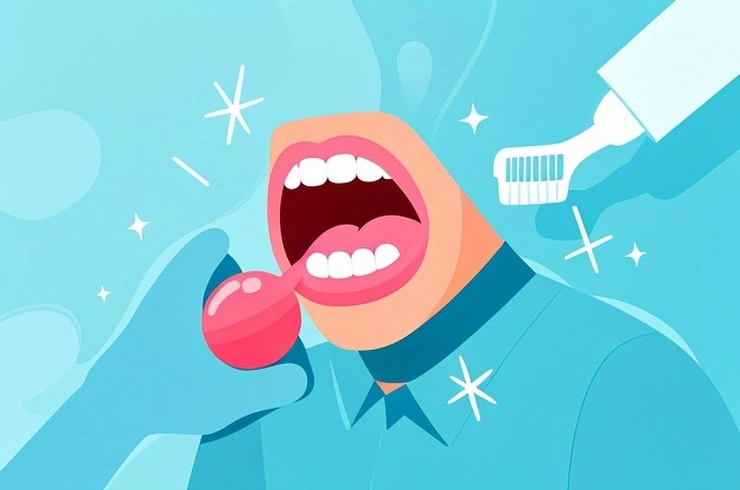
No one wants to hear they have bad breath, yet ignoring it can be far more detrimental than facing the truth. Also known as halitosis or malodor, bad breath can strain relationships and undermine confidence. Many people remain unaware of their condition because others are hesitant to address such a sensitive topic. As Dr. John Woodall, a dentist with Woodall and McNeill, points out, "Certainly bad breath can ruin relationships."
The good news is that banishing bad breath is often straightforward. The solution frequently involves a combination of diligent oral hygiene, regular dental check-ups, and identifying and addressing any underlying medical conditions, medications, or dietary habits that contribute to the issue.
Do You Have Bad Breath?
The primary culprit behind bad breath is typically a buildup of bacteria in the mouth. These bacteria cause inflammation and release noxious, sulfur-like gases. While everyone experiences temporary bad breath, such as morning breath, persistent halitosis requires attention.
Determining if your breath is offensive can be tricky on your own. The most reliable method is to ask a trusted friend or partner directly, as Dr. Tina Frangella of Frangella Dental suggests: "'Does my breath smell?' Because it's really hard to tell on your own." Another, albeit less pleasant, indicator is the smell of your dental floss after use. According to Dr. Woodall, "If your floss smells or there is blood on it, then there are foul odors in your mouth."
What Causes Bad Breath?
While precise statistics on the prevalence of bad breath are elusive due to self-reporting biases, studies indicate that approximately 80% of bad breath originates from an oral source. Common oral culprits include:
Cavities
Gum disease
Tonsil stones (trapped food particles in the tonsils)
Cracked fillings
Poorly cleaned dentures
Beyond oral issues, several internal medical conditions can also contribute to unpleasant breath. These include:
Diabetes
Liver disease
Respiratory tract infections
Chronic bronchitis
Acid reflux
Postnasal drip
Chronic dry mouth (xerostomia)
Dr. Woodall recounts a case where a 30-year-old patient with immaculate teeth and a clean tongue suffered from chronic bad breath. Her doctor investigated, treated her for acid reflux and other stomach conditions, and her halitosis resolved.
See Your Dentist, Take Care of Your Teeth and Gums
Once medical causes have been ruled out, maintaining a consistent dental care routine is paramount. Regular dental appointments are crucial; Dr. Frangella recommends visiting your dentist every six months, or at least annually.
Excellent oral hygiene is the cornerstone of fighting bad breath. Ideally, you should brush and floss after every meal to minimize odor-causing bacteria. While a manual toothbrush can be effective with proper technique, Dr. Frangella favors electric toothbrushes for two key reasons:
Built-in timers: Many electric toothbrushes ensure you brush for the recommended duration, which many people fall short of.
Uniform motion: Electric toothbrushes provide a consistent cleaning motion that more efficiently removes plaque than manual brushing.
Incorporating an antiseptic or antibacterial mouthwash can also be beneficial. Opt for rinses that actively kill bacteria rather than cosmetic ones that merely mask odors.
Watch What You Eat
Your diet significantly impacts your breath. As food is digested, its components are absorbed into the bloodstream and then exhaled through your lungs.
Maintain a healthy, balanced diet and eat regular meals.
Be wary of extreme diets, such as prolonged fasting or very low-carb diets, which can produce foul-smelling breath.
Snack on raw carrots, celery, or apple slices. These watery vegetables help cleanse your mouth of debris.
Avoid potent "breath busters" like garlic, onions, and some spicy foods. Chronic garlic consumption, for instance, can lead to both persistent bad breath and body odor.
Six More Ways to Fix Bad Breath
Beyond core oral hygiene and diet, these additional strategies can help banish bad breath:
Stay hydrated: Drinking plenty of water, especially after meals, helps flush away harmful bacteria and food particles. Milk can even help neutralize some strong odors. Avoid sugary drinks.
Limit coffee consumption: Coffee can leave a persistent odor on the back of your tongue. Consider switching to herbal or green tea.
Quit smoking and tobacco products: Cigarettes, pipes, and snuff are notorious for causing extremely foul breath and can exacerbate oral health issues.
Reduce alcohol intake: Alcohol can cause dry mouth, and its odor can linger for 8-10 hours after consumption.
Chew sugarless gum: Chewing sugarless gum for 20 minutes after meals stimulates saliva flow, which helps clean the mouth. Xylitol-sweetened gum can also help reduce cavities and freshen breath.
Be cautious with breath mints: Sugar-free mints offer a temporary fix by masking odors, but they don't address the underlying bacterial problem. Sugary mints should be avoided entirely, as the sugar can worsen the issue.
Pro Tip
The content of the article is shared by netizens, please carefully identify it